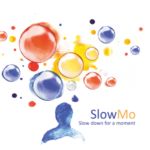
Trish Darcy and Peter Coventry consider a novel US research study on climate change, ambient heat, and the links to increased mental health-related emergency visits.
[read the full story...]
Trish Darcy and Peter Coventry consider a novel US research study on climate change, ambient heat, and the links to increased mental health-related emergency visits.
[read the full story...]
Steven Macdonald-Hart summarises a 10-year follow-up study from the US, which measures the relationship between borderline personality disorder and suicide attempts.
[read the full story...]
Sarah Watts reviews a cluster randomised clinical trial investigating the effectiveness of stratified care compared to stepped care for depression, which has implications for IAPT services.
[read the full story...]
Jessica Scaife reviews a individual patient data meta-analysis exploring the continuation of antidepressants versus sequential psychological interventions to prevent relapse in depression.
[read the full story...]
Ian Hamilton appraises a systematic review and meta-analysis on the association of opioid agonist treatment with all-cause mortality and specific causes of death among people with opioid dependence.
[read the full story...]
In her debut blog, Aneta Zarska reviews a cohort study which looks at the links between death from COVID-19 and a range of mental health conditions, including schizophrenia, depression and anxiety.
[read the full story...]
Imogen Bell blogs about a recent randomised controlled trial of the SlowMo app, which aimed to slow down thinking patterns and correct interpretation biases in people experiencing paranoia.
[read the full story...]
David Hallford summarises a recent systematic review and meta-analysis on the effectiveness of psychotherapy for depression across the lifespan.
[read the full story...]
Kinga Antal reviews a network meta-analysis which finds that individual, group, telephone and guided self-help CBT are all equally effective for treating depression in adults.
[read the full story...]
Francesca Bentivegna explores a timely RCT concluding that delivering internet-based (email) CBT for health anxiety is non-inferior to face to face CBT in the short-term. The study also concludes that iCBT is more cost-effective.
[read the full story...]